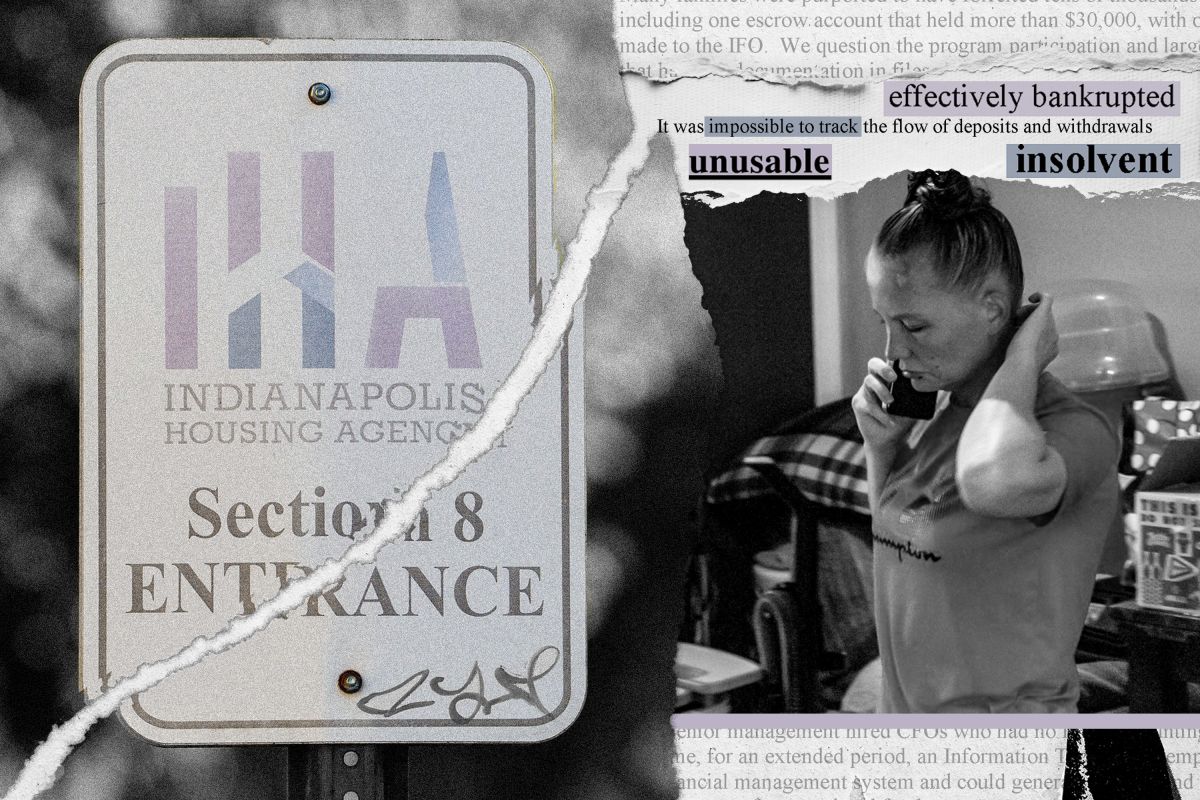
by Emily Hopkins and Tyler Fenwick, Mirror Indy
Randi Atwell’s rent should have been covered. In another city, with another public housing agency, that might have happened.
But not in Indianapolis.
Atwell found herself in eviction court in July, where she was forced to answer for being behind on rent.
Armed with a thick folder of papers, the 35-year-old mother tried to explain to the judge that it wasn’t her fault. She said she always met the conditions of her lease. The Indianapolis Housing Agency was responsible for paying Atwell’s rent.
The public housing agency, though, was — and still is — several months and thousands of dollars behind on rent, according to multiple landlords, caused in part by a cybersecurity breach in January.
So Atwell’s landlord wanted to push her out of his Beech Grove apartment building. Nevermind that she had been living there for four years, since before he became her landlord.
Less than a month after acquiring the property, however, her landlord left an eviction notice on her door — along with the doors of nearly two dozen of her neighbors.
Atwell walked into eviction court and told the judge she felt caught in the middle: “Why am I a third party that’s getting the blame?”
Atwell’s landlord, Dennis Brackenridge, told Mirror Indy he tried contacting IHA but couldn’t get ahold of the agency. Greg Stocking, IHA’s interim CEO at the time, said the agency didn’t get the information it needed from Brackenridge.
Either way, the breakdown is further evidence of the housing crisis engulfing Indianapolis — a city that sees an average of more than 60 eviction filings every day.
And the one agency that is supposed to serve as a safety net — the one meant to provide safe, subsidized housing to thousands of low-income residents — is instead directly contributing to the crisis, a monthslong investigation by Mirror Indy has found.
“It’s like a building that’s on fire and you’re seeing smoke coming out of all the windows, and the fire department is waiting to come and address it until it’s burned down to the ground and there’s nothing left to be done.”
— Kate Walz, associate director of litigation at the National Housing Law Project
For this investigation, Mirror Indy interviewed 10 Section 8 voucher holders, as well as landlords, housing advocates, attorneys and former IHA leaders and board members; observed three days of eviction court proceedings; and reviewed more than 1,000 pages of local, state and federal records.
What emerged is a troubling portrait of IHA. At least two decades of mismanagement. Misspent voucher dollars on staff pay and travel. Unanswered calls and emails from renters and landlords.
While many of the problems plaguing the agency appear bureaucratic, the consequences of IHA’s failures are as dramatic as they are lasting.
After facing eviction in Beech Grove, a man in his 60s was left homeless, sleeping in a southside park. A woman who has chronic health problems also became homeless.
“What an absolute perfect example of the consequences of having an under-resourced and broken housing authority,” said Melissa Bell, diversion program manager for HealthNet’s Homeless Initiative Program.
Atwell and her son, at least, didn’t end up on the streets after losing her eviction case. They’re temporarily staying with family and friends, trying to figure out how to recover from the setback.
“We are being treated like trash and like we did something wrong,” Atwell said.
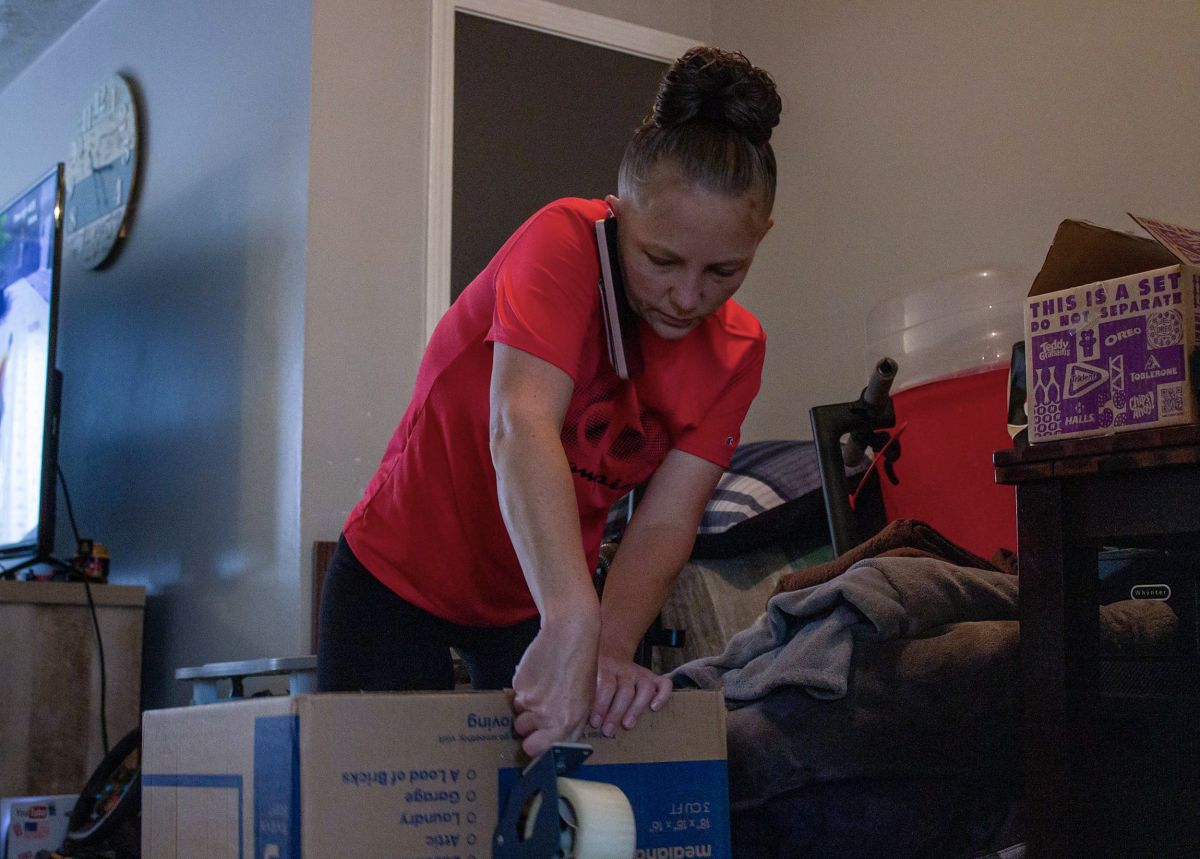
Richard Monocchio, principal deputy assistant secretary of the U.S. Department of Housing and Urban Development’s Office of Public and Indian Housing, initially agreed to an interview but canceled after Mirror Indy sent the findings of this investigation.
A HUD spokesperson also did not answer a list of emailed questions, instead sending a statement.
IHA “had failed to provide decent, safe, and sanitary housing,” and HUD has been collaborating with the city to address “longstanding issues,” the statement read, in part. “Our priority is a safe and supportive housing environment.”
Previous attempts to reform the agency were ultimately unsuccessful. While IHA is not a city department, it’s unclear why Mayor Joe Hogsett and city-county councilors haven't used the authority they do possess to more strongly advocate on behalf of Indianapolis residents like Atwell.
Hogsett, through a spokesperson, declined a Mirror Indy interview request for this story.
IHA’s failures grew so dire that HUD took over the agency earlier this year. It remains to be seen whether it was too late; HUD officials have been aware of problems for years, and the Hogsett administration asked them to intervene in December 2022.
“It's like a building that's on fire and you're seeing smoke coming out of all the windows,” said Kate Walz, associate director of litigation at the National Housing Law Project, a nonprofit that advocates for tenants' rights and protections for low-income homeowners, “and the fire department is waiting to come and address it until it's burned down to the ground and there's nothing left to be done.”
How IHA fails its renters
While homelessness is the extreme result of IHA's failures, several other renters face more routine problems that are still dangerous.
Paige Miller, for example, said she lived in a unit that had exposed mold, which can be especially harmful to children.
Miller’s daughter once got a bloody nose — a common symptom of mold exposure — that was so bad it stained the blankets and sheets on her bed.

She tried to get IHA to intervene but couldn’t get the agency’s attention.
“Every single time there was an incident, I sent an email,” Miller said. “Never got a response.”
That’s why Miller is sick of people telling her she should be thankful for rent assistance from the government. Because she’s used many words to describe how she feels about IHA — and thankful isn’t one of them.
“Honestly,” Miller said, “the most miserable I have been is being on Section 8. I was happier struggling with bills.”
By the time Miller got on the waitlist for a voucher around 2021, IHA had been struggling for more than 15 years to run its voucher program.
Some years, the agency failed to distribute all the vouchers for which it had federal funds to do so. Officials at one point estimated that IHA could house an additional 1,800 families that year with unused vouchers.
Federal officials also said in their 2018 audit report that IHA pursued costly investigations against landlords in cases that could have been dealt with administratively. In what HUD labeled as one of the most egregious examples, IHA threatened to sue a landlord and refer them for criminal proceedings over some paperwork issues and housing quality standards violations — and IHA paid for a staffer to travel out of state.
“For some reason,” HUD officials wrote, IHA’s Office of Special Investigations “felt it was necessary and appropriate to travel to the state of Massachusetts to obtain a photo of the landlord’s personal home and include it in the report.”
Those years of mismanagement found their way to Miller, who waited two years just to get a voucher. And that was only the first step. Voucher holders must find someone willing to rent to them, and they have to do it within 60 days, before their voucher expires.
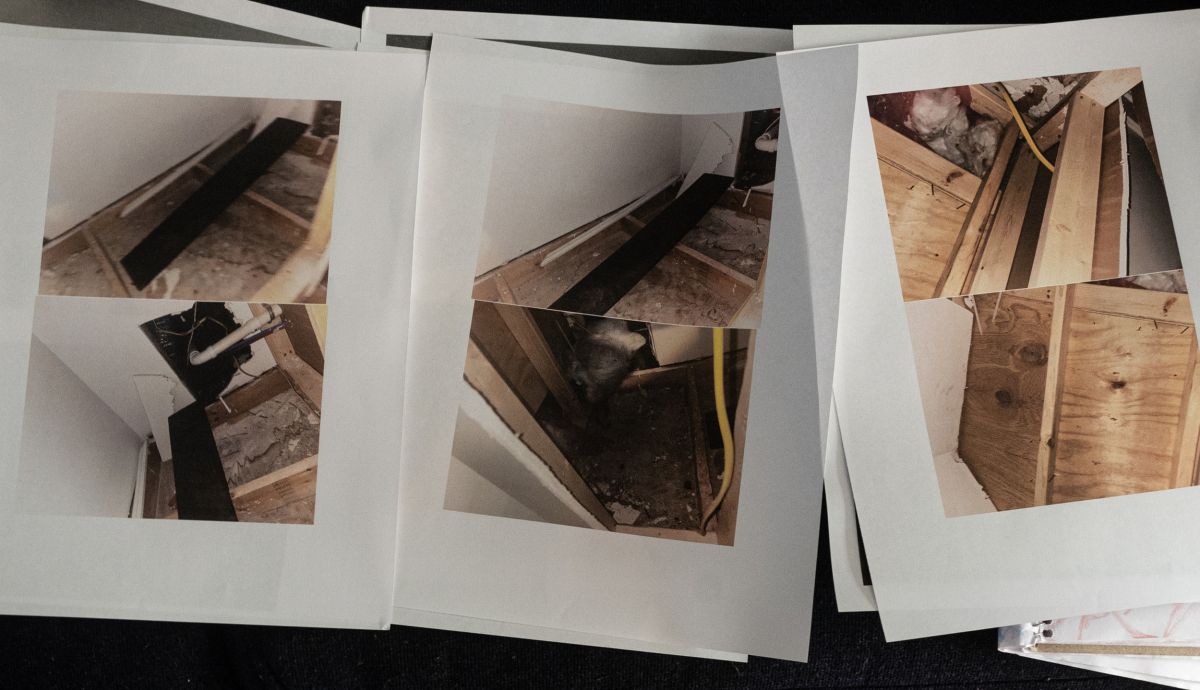
In 2023, Miller moved into a big house that was split into separate units. She said the landlord showed her one unit that actually looked like it could be a home for her family.
However, when they moved in, they were in a unit that Miller described as more like an attic.
She could peel back parts of the wall to show mold and insulation. The thermostat had a lock box to prevent her from adjusting the temperature.
So Miller showed up at an IHA board meeting over the summer, standing up not just for herself but for her family.
“It’s me that has to step in,” she said. “Somebody needs to do something.”
Against the backdrop of an urgent housing crisis, “IHA lingers like an inactive ghost in the background,” said Laurin Embry, director of the Indiana Tenant Association, which educates renters and helps people facing eviction.
Miller did find some luck in a landlord who heard her story and leased a house to her near the Indiana State Fairgrounds.
Even now, though, she said IHA hasn’t paid its portion of her rent since July when she moved in, so the stress continues to linger.
“They’re not upholding their part,” Miller said, “so it’s like now I have to wake up worried.”
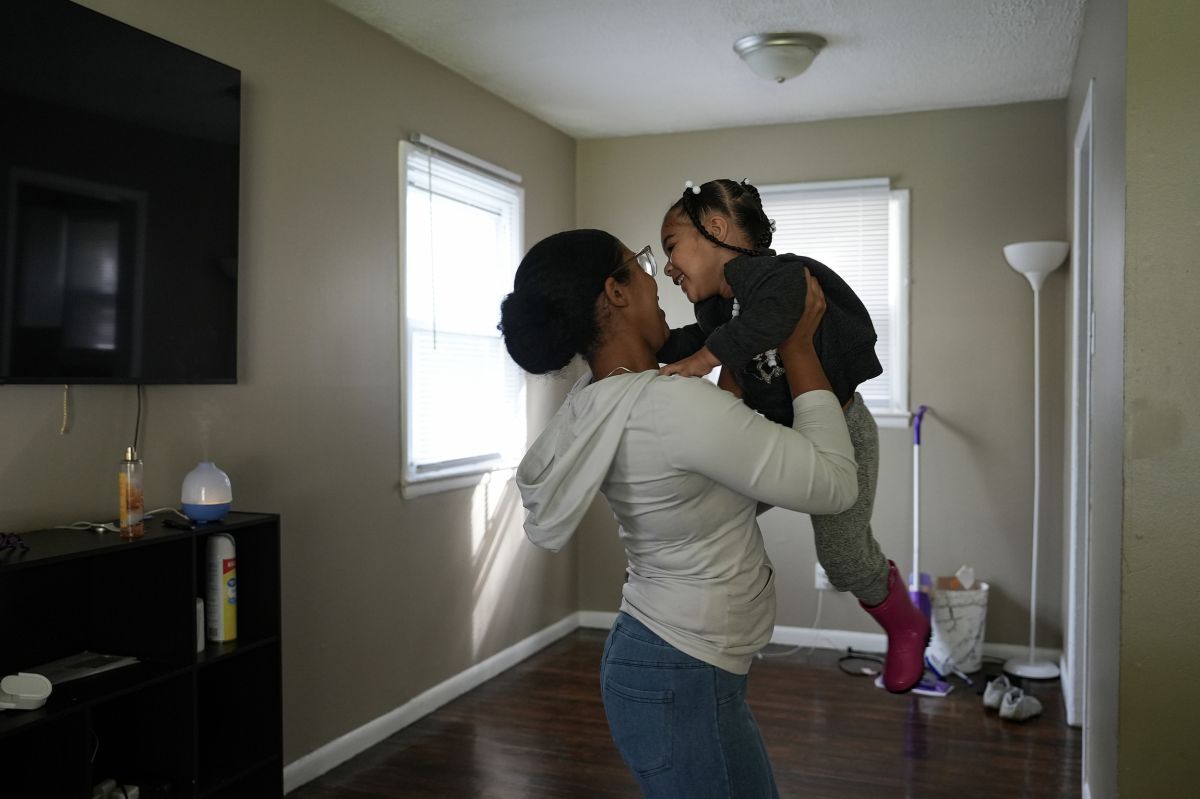
New leaders, same problems
It seems like everybody knows that IHA is in bad shape.
The question is: Why weren’t more people doing something about it?
Back in 2018, Hogsett said he would.
At the time, federal officials had concluded in an audit that IHA had “effectively bankrupted its own” voucher program by overspending on administrative fees.
So the mayor vowed to clean up the mess.
“To the extent that there’s been any mismanagement, misappropriation of funds, to the extent that there’s been any evidence of unethical conduct,” Hogsett said at the time, “we’ll get to the bottom of it and we’ll make the appropriate changes.”
By then, it had been more than a decade since HUD officials had determined IHA was mismanaging its voucher program. Nearly $1 million meant to fund the voucher program, according to a 2007 audit, instead went to unrelated expenses, including travel and advertising.

In defense of the agency, then-executive director Rufus “Bud” Myers said not spending those funds “would have potentially created a paralyzing effect on the operations of the agency.”
HUD told IHA to use better financial controls and required the agency to pay back the federal funds it had misspent.
But more than a decade later, officials again found evidence of mismanagement.
The 2018 audit found that IHA recordkeeping was so poor that HUD officials had a hard time determining if money was properly spent. Errors in IHA’s housing voucher tenant files, for example, were so pervasive that federal officials estimated IHA had put half a billion federal dollars over roughly a decade at risk of being spent on, for example, miscalculated rents, ineligible tenants and landlords, or units that did not meet housing quality standards.
Over the next six months following Hogsett’s pledge in 2018, city officials oversaw an overhaul of the board, and the mayor appointed a new leader — John E. Hall.
But meaningful reforms do not appear to have followed. And by the time the COVID-19 pandemic shut down the world, the agency was in no condition to withstand such a crisis.

The agency’s outdated technology and reliance on paper files made it nearly impossible to work remotely. Exposure among staff, and child care challenges, hampered their workforce.
In 2022, four years after the mayor promised to clean up the agency, IHA was on the brink of collapse, with a new interim executive director saying the agency needed $10 million to get back on track. That director turned to selling IHA properties to keep the agency afloat.
After decades of problems at IHA, local advocates and residents are questioning whether their mayor and city-county councilors will ever step in to protect some of their most vulnerable constituents.
City leaders insist they have little power to spur change.
Neither Hogsett nor anyone else from his office agreed to a Mirror Indy interview request.
In a written response to questions posed by Mirror Indy, the city spokesperson emphasized the Hogsett administration’s limited authority over a federally regulated agency. That’s one reason why the administration requested HUD take over IHA in 2022, and has since entered into an agreement with HUD with the goal to stabilize the agency.
Since 2020, the city has contributed at least $3.34 million in loans, direct cash assistance, and technology upgrades, according to the spokesperson.
In an interview, council President Vop Osili said that while the City-County Council works with constituents and IHA to resolve cases of unsafe housing conditions, it does not have any say over IHA’s finances.
“We don't have a role in their operations,” Osili said. “We don't have any fiscal impact or fiscal connection with HUD, and we definitely don't have it with IHA.”
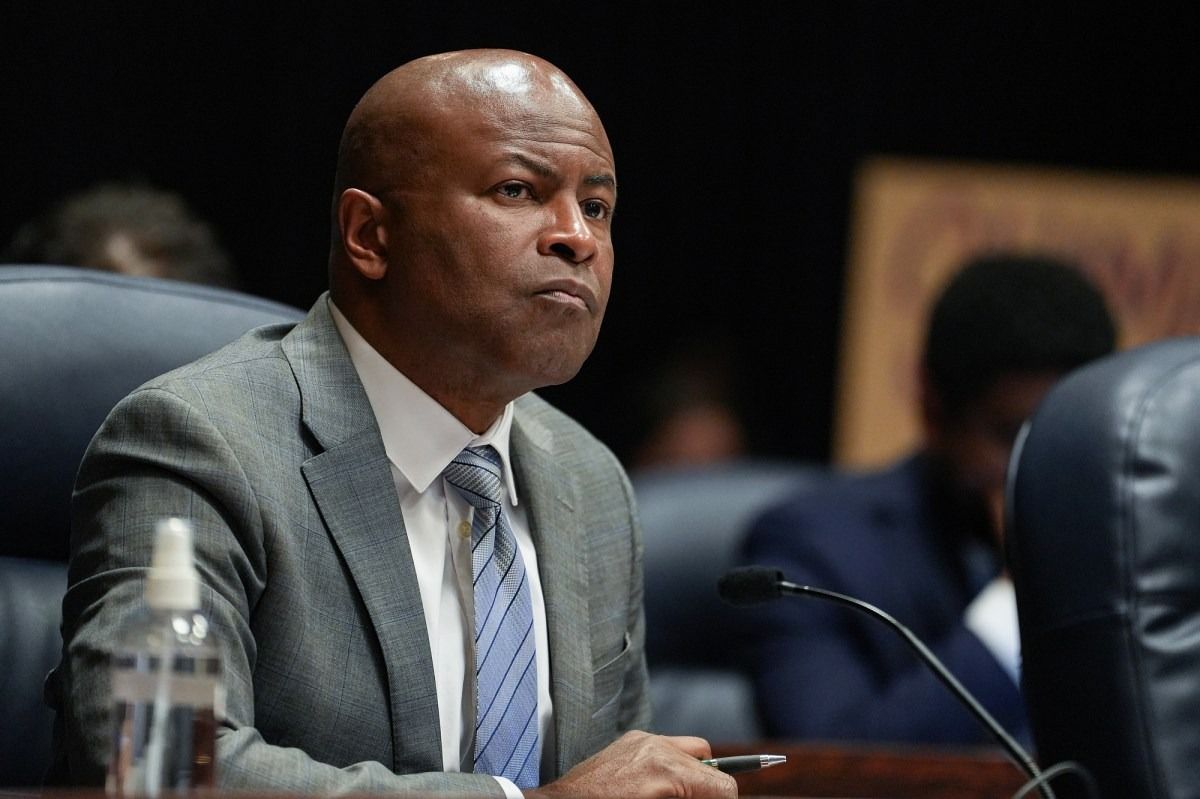
It’s true that, unlike city departments, IHA is an independent, federally funded agency that was spun out from the city’s Department of Metropolitan Development in 1994. It’s regulated not by the city, but by the federal government.
Yet for whatever steps taken by city officials since 2018, vulnerable renters continue to struggle.
And until HUD’s takeover, the mayor chose the agency’s executive director, subject to the council’s approval.
Hogsett and the council also held the power to pick most of the people who serve on IHA’s nine-member board: five by the mayor, two by the council.
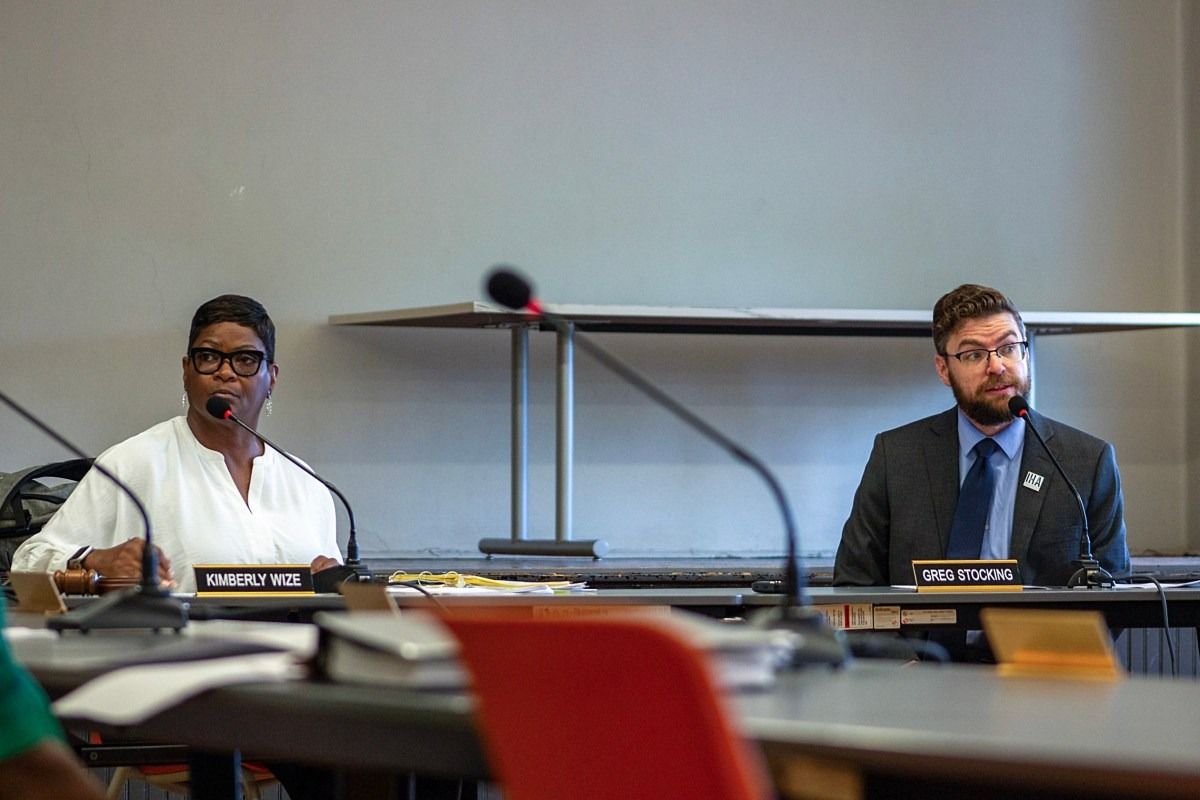
And, according to city code, the council is supposed to regularly review IHA’s budget, and it has the power to call the agency’s executive director in front of the council at any time.
Rabbi Aaron Spiegel, executive director and president of the Greater Indianapolis Multifaith Alliance, organizes people to watch eviction court to ensure renters are treated fairly.
He looks back at Hogsett’s commitment in 2018 and sees a failure that can be placed squarely at the feet of city government.
“They didn’t do a damn thing,” he said.
An ‘insolvent’ housing program
In 2022, HUD launched yet another audit of IHA’s operations from January 2018 through February 2022.
What they found was disturbing: IHA records were “unusable,” and what evidence auditors could amass painted a bleak picture of the agency.
Millions of dollars of debt were unaccounted for. Its housing choice voucher program was “insolvent,” and officials found it “impossible to track” the flow of cash among more than 70 bank accounts maintained by IHA.

Officials again identified questionable spending of housing choice voucher funds. In most cases, the improper spending appeared to be caused by staff not understanding fiscal and appropriations law. In some instances, however, the spending appeared to be “intended misfeasance,” according to the audit.
Hall, who was executive director from March 2019 to January 2022, declined multiple Mirror Indy requests for an interview, citing a nondisclosure agreement he said he signed with IHA. Jennifer Chrzanowski, IHA director of administrative services, said no such agreement exists.
The full extent of IHA’s financial woes remains unclear. Federal officials found that IHA’s financial recordkeeping was so poor that they said they could not complete thorough reviews of its spending.
HUD has ordered a forensic audit of the agency.
Who else is to blame?
Although the problems at IHA have been thoroughly documented in state and federal audits, who, exactly, should be held responsible is up for debate, according to those who spoke to Mirror Indy.
Former board members and an agency leader said that they could not understand the reason for the decline. But they generally pointed fingers at Hall and the city leaders’ decision to overhaul the board.
“What I think would be the best option for you is to call the mayor's office. They are the ones who have made the decisions,” said Christopher L. Barney, a former IHA board chair who left in February 2019. “When I left, we were humming along at a real pace, and everything seemed to be clear and clean. I don't know what happened since then.”
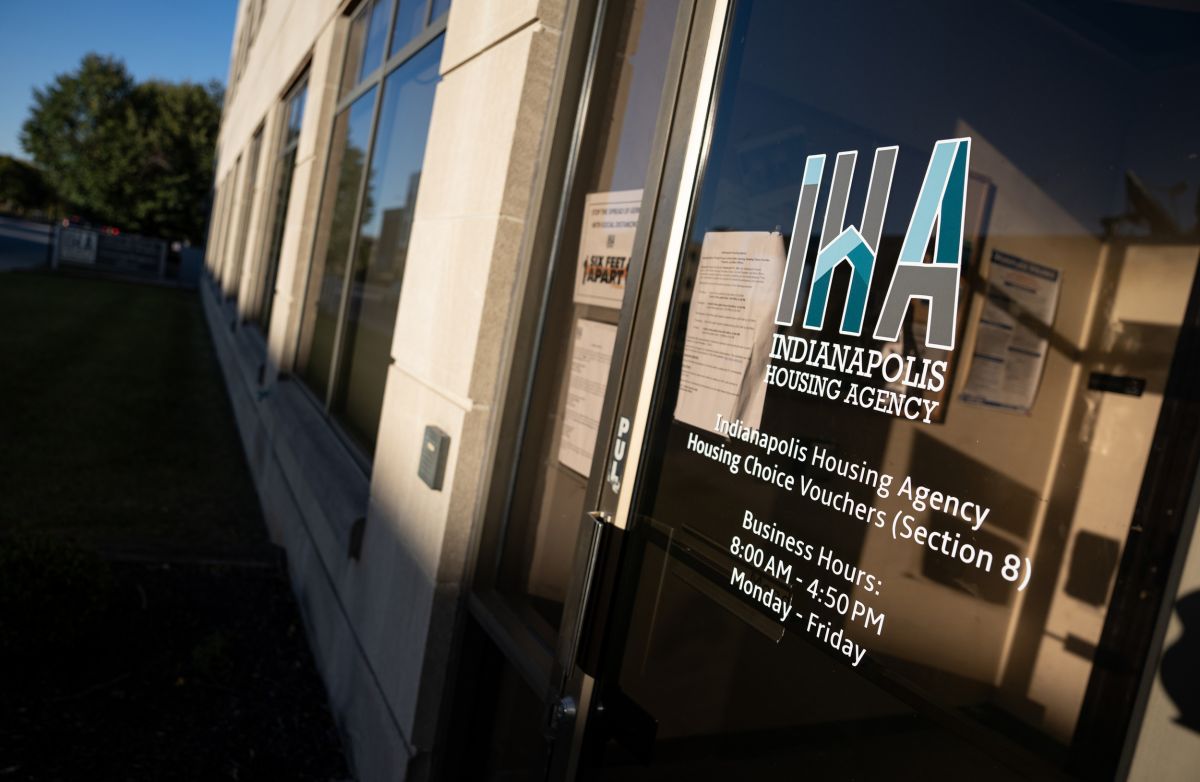
Other former board members echoed Barney’s sentiments: IHA’s decline began after they had already left.
Ralph Jordan, chief operating officer of IHA from April 2016 through June 2018, said he worked aggressively to address several issues that originated long before he joined the agency. And although HUD identified more issues during his time there, he said they did not come to light until after he had left.
“If I would have still been there, we wouldn’t have had those problems,” Jordan said. “So I don't know what happened after I left.”

Since 2022, IHA has been the victim of two cyberattacks that disrupted the agency’s ability to pay landlords.
IHA’s failure to upgrade technology and security may have increased the likelihood that the agency was vulnerable. As recently as June 2021, some IHA machines were still operating on Windows 7 or Windows Server 2008. Microsoft discontinued support for those operating systems in January 2020, meaning they no longer provided security updates. It’s unclear if those computers had been updated by the time of the first cyberattack.
And, in its latest audit, HUD officials found what they called “an ongoing failure" of internal controls stretching back at least a decade related to IHA's bank accounts. A single member of the agency’s IT department was able to execute wire transfers, change tenant data, make accounting adjustments and disburse cash without needing another employee or an IHA manager’s approval.
This “unrestricted access” for such a long time meant that it’s possible that there are falsified financial records, unsupportable cash disbursements and other violations that have yet to be discovered, HUD officials concluded.
Neither the U.S. Department of Justice nor the Marion County Prosecutor’s Office responded to questions about whether the agencies have launched criminal investigations surrounding IHA.
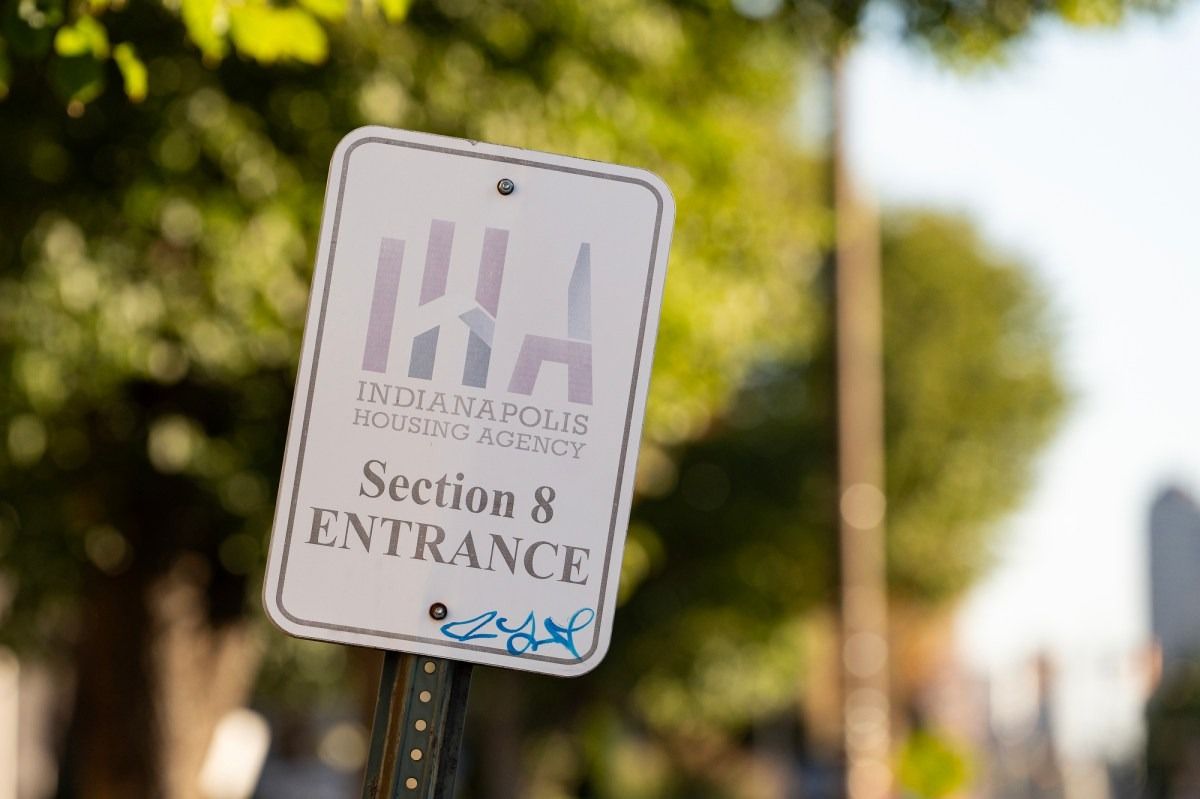
In April, federal officials essentially fired the existing board and replaced it with a single HUD-appointed member, Kimberly Wize, director of HUD’s Indiana field office.
Mirror Indy tried to reach every person who was on the board at the time of HUD’s takeover. In most cases, those former board members either declined or did not respond to Mirror Indy’s interview requests. Attempts to reach three of the board members were unsuccessful.
One recent board member did speak to a Mirror Indy reporter: former board member Aaron Atwell, who served from October 2020 through mid-2023. He is the chief financial officer of one of Indiana’s largest nonprofit family services agencies.
“There's a lot of just outdated policies and procedures that we were working on trying to get updated and crafted that just, I really think, put the agency in a vulnerable position,” said Atwell, who is not related to the former Beech Grove renter Randi Atwell.
‘New day’
The newly appointed executive director of IHA made a declaration at a board meeting in September.
He and his staff were working toward “a new day at IHA,” Willie C. Howard Garrett said to an audience of IHA staffers and residents.
In February, HUD officials sent a letter to Allen, the IHA board chair: Despite HUD having provided damning findings to the agency in July 2023, IHA had “provided no evidence” that it had taken actions to correct the problems.

Just over a month later, HUD and the city announced the federal takeover of the agency. Such drastic measures are pursued rarely and only for agencies in the most dire of circumstances, legal experts told Mirror Indy.
The goal is to bring the agency into compliance with federal laws and to restore its ability to safely and reliably house thousands of low-income residents.
More than six months later, many in the city have not seen a different side of the agency.
When Mirror Indy tried asking Garrett about the agency in person, he declined to talk and said to send questions over email. Asked specifically about what happened with the renters in Beech Grove who were evicted because of IHA’s failure to pay, Garrett said he had “no additional comments at this time.”

Randi Atwell’s attempt to fight her eviction was unsuccessful. Just days after her court appearance, she was packing her belongings. She had to leave by Aug. 19.
Atwell found a 10-by-12-foot storage unit for her belongings. She and her son have been staying with her father, other family — anyone who can help them get by.
“It’s either that or my car,” she said.
In early October, as time was running out to use her voucher, Atwell underwent surgery for a hernia. She tried to get an extension to buy her more time, but IHA denied her.
It may be years before she gets another voucher.

How Mirror Indy reported this series
Indianapolis is facing a housing crisis. More evictions are filed here than almost anywhere else in the country. Rent is up nearly $400 per month compared to five years ago. Through it all, there’s supposed to be a government agency that keeps people housed.
But the Indianapolis Housing Agency is failing.
We started reporting on this story in May, when someone contacted Tyler with a news tip about a wave of evictions at an apartment complex in Beech Grove. Then came the detail that really launched this investigation: They were getting rent assistance through IHA.
Around the same time, Emily began requesting public records from the U.S. Department of Housing and Urban Development and IHA and reading IHA audits from the State Board of Accounts.
We read through contracts, state and federal laws, and more than a thousand pages of documents about IHA.
We also interviewed Section 8 tenants, landlords, attorneys, government officials and housing experts.
We went to IHA board meetings, which are lightly attended but offer a glimpse at how the agency functions, as well as eviction court and to what IHA calls a walk-in Wednesday, which is where Section 8 tenants can talk to agency workers about their problems.
We also attempted to reach every person who was on the board at the time of HUD’s takeover. The board’s chair and vice chair, Michael Allen and William Zink, respectively, did not respond to several phone messages and emails requesting an interview.
Sherry Seiwert declined to speak on the record, citing her current role working on housing issues for the Indiana Finance Authority. Esther Carter-Day, vice president and commercial real estate loan officer for Stock Yards Bank & Trust, said she was “not interested” in being interviewed.
Yolanda Cowell did not respond to interview requests. Efforts to reach Joe Whitsett, Jonelle Barlow and Bonita Davis were unsuccessful.
This article is the first in a series. We will continue to report on IHA and Indy’s housing crisis. If you have tips, comments or complaints, you can reach us at the contact information below.
Reach Mirror Indy reporter Emily Hopkins by phone or on Signal at 317-790-5268 or emily.hopkins@mirrorindy.org. Follow them on most social media @indyemapolis.
Mirror Indy reporter Tyler Fenwick covers housing and labor. Contact him at 317-766-1406 or tyler.fenwick@mirrorindy.org. Follow him on X @ty_fenwick.
This article first appeared on Mirror Indy and is republished here under a Creative Commons license.
 DONATE
DONATE


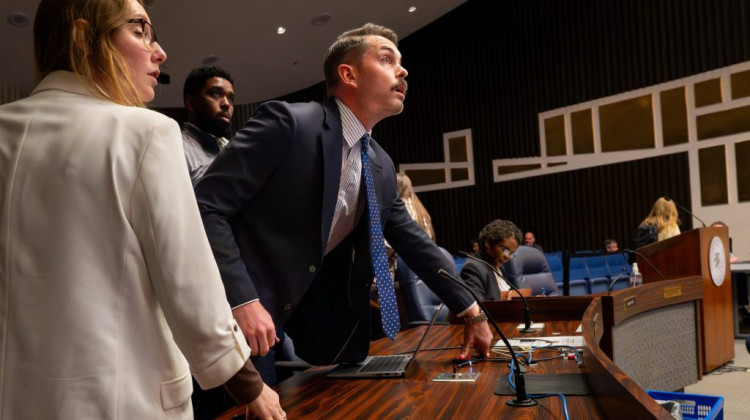


 Support WFYI. We can't do it without you.
Support WFYI. We can't do it without you.